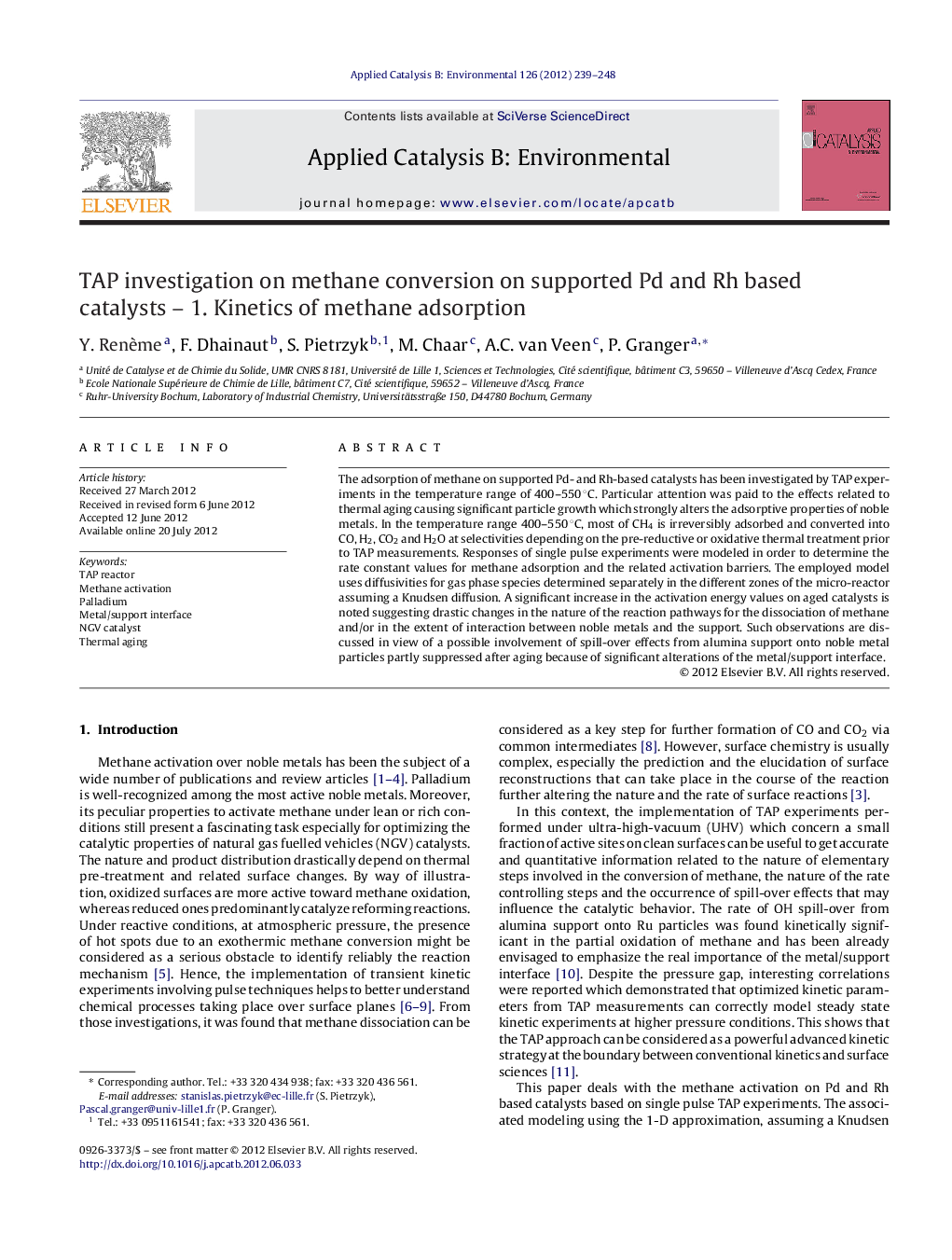| Article ID | Journal | Published Year | Pages | File Type |
|---|---|---|---|---|
| 46549 | Applied Catalysis B: Environmental | 2012 | 10 Pages |
The adsorption of methane on supported Pd- and Rh-based catalysts has been investigated by TAP experiments in the temperature range of 400–550 °C. Particular attention was paid to the effects related to thermal aging causing significant particle growth which strongly alters the adsorptive properties of noble metals. In the temperature range 400–550 °C, most of CH4 is irreversibly adsorbed and converted into CO, H2, CO2 and H2O at selectivities depending on the pre-reductive or oxidative thermal treatment prior to TAP measurements. Responses of single pulse experiments were modeled in order to determine the rate constant values for methane adsorption and the related activation barriers. The employed model uses diffusivities for gas phase species determined separately in the different zones of the micro-reactor assuming a Knudsen diffusion. A significant increase in the activation energy values on aged catalysts is noted suggesting drastic changes in the nature of the reaction pathways for the dissociation of methane and/or in the extent of interaction between noble metals and the support. Such observations are discussed in view of a possible involvement of spill-over effects from alumina support onto noble metal particles partly suppressed after aging because of significant alterations of the metal/support interface.
Graphical abstractFigure optionsDownload full-size imageDownload as PowerPoint slideHighlights▸ TAP as a powerful approach for the quantification of support induced effect on CH4 adsorption. ▸ Evidence from TAP of the detrimental effect of sintering via accurate calculation of activation barrier for CH4 adsorption. ▸ A detail approach in modeling outlet flow rate of CH4 accounting for the porous structure of NGV Pd–Rh/Al2O3 catalysts. ▸ Beneficial effect of Rh limiting the loss of CH4 adsorption on aged-NGV Pd-Rh/Al2O3.
